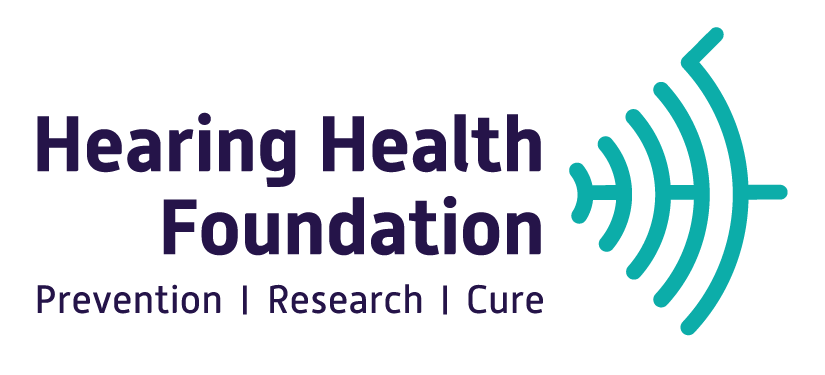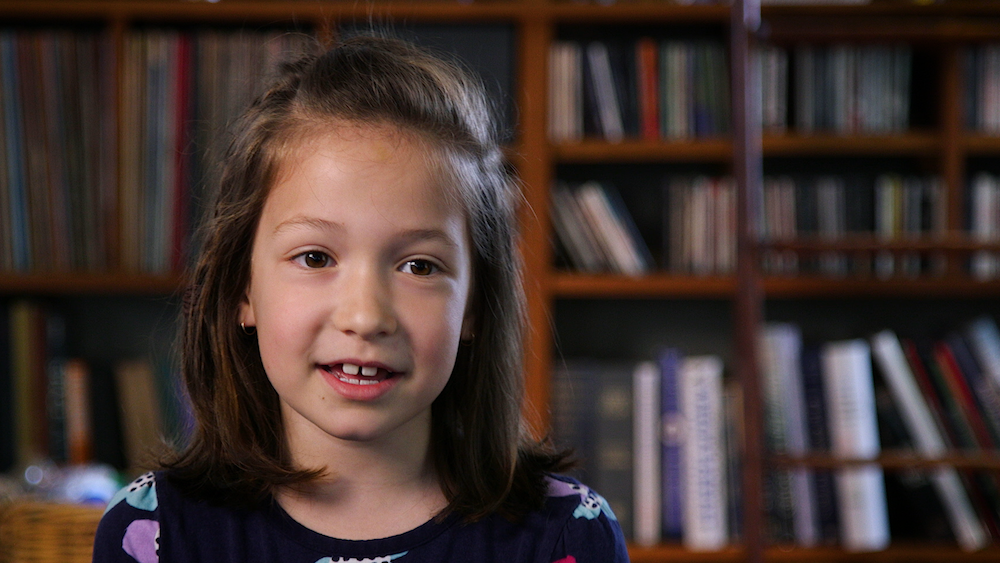The Congressionally Directed Medical Research Programs’ (CDMRP), Hearing Restoration Research Program (HRRP) consumer advocate John Dillard participated in January the evaluation of research applications submitted to the HRRP in January.
Veterans Leading the Way
HHF leaders John Dillard and Timothy Higdon are two U.S. Army veterans who bring, collectively, over four decades of military service to HHF as its Board of Directors chair and CEO, respectively. Here they share the perspectives and experiences gained from their service in the military and what they hope to accomplish in their new roles.
Outsmarting the Most Common Military Injury: How One Veteran Is Helping Future Generations
After meeting qualifications through a rigorous annual application process, HHF Board Chair John Dillard has been a tinnitus consumer reviewer for three years, a role he expects to continue.
You Can Lead the Way
By Col. John Dillard, U.S. Army (Retired)
Folks like you are the reason Hearing Health Foundation (HHF) has just completed its 60th anniversary year of groundbreaking work toward better treatments and permanent cures for hearing loss and tinnitus. Your donations make it possible.
Tinnitus and hearing loss, respectively, are the number one and number two disabilities reported by returning American military personnel.
Thank you for everything you do.
Living with noise-induced hearing loss and tinnitus following 26 years of service in the U.S. Army, I strongly share your desire for more scientific developments — both to restore hearing and to prevent its loss.
Every person serving on our Board of Directors is also connected to a hearing disorder in some way and shares our passion for progress. It is coming. As each year passes we learn more and more about key processes in the brain and auditory system.
We’re grateful for these discoveries that bring us closer to hearing regeneration in adult mice (as human proxies for now), and toward new treatments for tinnitus, Ménière's disease, and related conditions. But we know more must be accomplished for all of us to enjoy a better quality of life.
Your generosity can make possible the discoveries we — our veterans, our parents, our children, our spouses, our friends — urgently need.
Please, if you are able, give today to HHF to fund more innovative scientists in 2019-2020 and accelerate much-needed treatments and cures.
HHF will direct 100% of your gift toward the program your choose — Hearing Restoration Project (HRP), Emerging Research Grants (ERG), Ménière's Disease Grants (MDG), or Education. Thank you for your consideration and for being part of our mission.
Suffering After Sacrifice
By Lauren McGrath
Every Veterans Day, Hearing Health Foundation (HHF) celebrates the brave individuals who have served and sacrificed to defend our country. We are grateful to our active military members and veterans for their courageous protection of American values and freedoms.
As we honor those who have served in the U.S. Armed Forces, we acknowledge a tragic and troubling health problem. An astounding number of veterans—60% of those returning from Iraq and Afghanistan—live with tinnitus and noise-induced hearing loss. In 2017, the Veterans Administration reported 1.79 million disability compensation recipients for tinnitus and 1.16 million compensation recipients for hearing loss, the number one and two disabilities, respectively. In an HHF video about hearing loss treatment, Retired Army Colonel John Dilliard, Chair-Elect of HHF’s Board of Directors, explains, “The noise from repeated gunfire and high-frequency, high-performance aircraft engines takes its toll on the human hearing mechanisms.” Col. Dillard lives with both tinnitus and hearing loss following 26 years of service.
John Dillard and fellow soldiers, Fort Irwin National Training Center, 1977.
Dr. Bruce Douglas, 93, remembers the moment his hearing became severely compromised while serving in the Navy during the Korean War. “On what was my 26th birthday, after pulling the trigger on the M1 rifle with no protection (none of us had any) multiple times, I was left with tendonitis in both knees—and worse, permanent, chronic tinnitus due to acoustic trauma. My hearing went downhill ever after, and every imaginable kind of sound and sensation has resulted from my tinnitus,” Douglas writes in the Fall 2018 issue of Hearing Health.
Hearing protection training must start as soon as one enters the military. But there is a misconception that hearing protection inhibits vital communication and mission readiness because hearing signs of danger is imperative to survival. “Soldiers want to be able to hear the snap of the twig and want to be able to be situationally. As a result, they are often resistant to wearing hearing protection,” Col. Dillard says.
Fortunately, sophisticated hearing protection technology does exist so that military personnel do not have to choose between protecting their ears or their lives. Examples include noise-attenuating helmets, which use ear cups to protect against hazardous sound, and Tactical Communication and Protective Systems, which protect against loud noises while amplifying soft ones.
The U.S. military continues to work toward safer hearing in the service. The U.S. Army has developed the Tactical Communication and Protective System (TCAPS), which are earbuds that dampen dangerous noises to safe levels using microphones and noise-canceling technology, while also providing amplification of softer sounds and two-way communication systems. An initiative by the U.S. Air Force called Total Exposure Health (TEH), meanwhile, focuses on overall health both on and off the job, will measure cumulative noise exposure over the course of 24 hours. These developments and others, which HHF applauds, are covered in greater detail in Hearing Heath’s Fall 2017 issue.
As greater preventative technology for our military becomes available, HHF remains dedicated to finding better treatments and cures for tinnitus and hearing loss to benefit the lives of millions of Americans, including veterans, a disproportionately affected group. We hope you will join us in remembering their sacrifices with gratitude and compassion.
Hearing Loss Film “Hearing Hope” Captures Personal Strength, Scientific Vision
Hearing Health Foundation (HHF) has created a new short film, “Hearing Hope,” to expand awareness of hearing health through the voices of those who benefit from and those who carry out the foundation’s life-changing work.
"It took me longer to talk than most kids. Because I couldn't understand what they were saying so I couldn't copy it," explains Emmy, 7.
The third most prevalent chronic physical condition in the U.S., hearing loss can affect anyone—from first-grader Emmy to retired U.S. Army Colonel John—but its reach is often underestimated. “It’s one of the most common sensory deficits in humans,” explains cochlear implant surgeon Dr. Anil Lalwani. “I think we have to go from it being hidden to being visible.”
Both a hearing aid user and cochlear implant recipient, seventh-grader Alex is doing his part to make hearing loss less hidden. Smiling, he says he wants people to know that hearing with his devices makes him happy. John wishes to be an advocate for veterans and all who live with hearing loss and tinnitus.
When she received her hearing loss diagnosis at 17, NASA engineer Renee never thought she'd be living her dream.
The film also highlights resilience in response to the challenges associated with hearing conditions. Video participant Renee saw her dream of becoming an astronaut halted at 17 when her hearing loss was detected. Now she helps send people to space as an engineer at NASA.
Sophia describes the “low, low rock bottom” she hit when she was diagnosed with Usher Syndrome, the leading cause of deafblindness. Yet she feels special knowing her disability shapes her and sets her apart.
Jason recounts having no resources for hearing loss in children when his son, Ethan, failed his newborn hearing screening. Today he’s grateful for Ethan’s aptitude for language, made possible through his early hearing loss intervention.
With the support of HHF, more progress is made each year. “I’m glad that the doctors are trying to figure out how fish and birds can restore their hearing,” says Emmy.
For the past 60 years, HHF has funded promising hearing science and in 2011 established the Hearing Restoration Project (HRP), an international consortium dedicated to finding biological cures for hearing loss using fish, bird, and mouse models to replicate the phenomenon of hearing loss reversal in humans.
“If [the HRP] can achieve that goal of hearing restoration...that would be a marvelous thing for hearing loss,” reiterates Dr. Robert Dobie.
Through “Hearing Hope,” HHF would like to share its mission and message of hope to as many individuals as possible and reassure those with hearing loss and their loved ones they are not alone. As an organization that channels all efforts into research and education, HHF would greatly appreciate any assistance or suggestions to increase visibility of the film.
Watch the full film at www.hhf.org/video. Closed captioning is available.
HHF Welcomes John Dillard, Retired U.S. Army Colonel, to Board of Directors
By Nadine Dehgan
Hearing Health Foundation (HHF) recently welcomed COL John T. Dillard, USA (Ret) to its Board of Directors. A Cold War Veteran, COL Dillard lives with tinnitus and hearing loss—the two most common war injuries—as a result of repeated exposure to gunfire and blasts.
COL Dillard is currently a Senior Lecturer for Systems Acquisition Management at the Naval Postgraduate School (NPS) in Monterey, California, where he has been employed since his retirement from the U.S. Army in 2000. His curricula focus on system developments to advance technology and warfighting capabilities. At the NPS, COL Dillard also counsels young military officers as they cope with the effects of tinnitus including sleep, concentration, and mood issues.
Previously, COL Dillard held positions as an instructor at the U.S. Army War College and an adjunct professor at the University of California at Santa Cruz. In the latter, he educated Silicon Valley public and private industry professionals in Project Management. The full-text versions of his own many written works on managing technology efforts are available on ResearchGate.
In addition to his present role at the NPS, COL Dillard is a Defense Department Consumer Reviewer for the annual Congressionally Directed Medical Research Program for scientific proposals in the areas of tinnitus and noise-induced hearing loss research. COL Dillard says that he "hopes to contribute in a tangible way to HHF’s drive to restore hearing for countless people affected by its loss."







